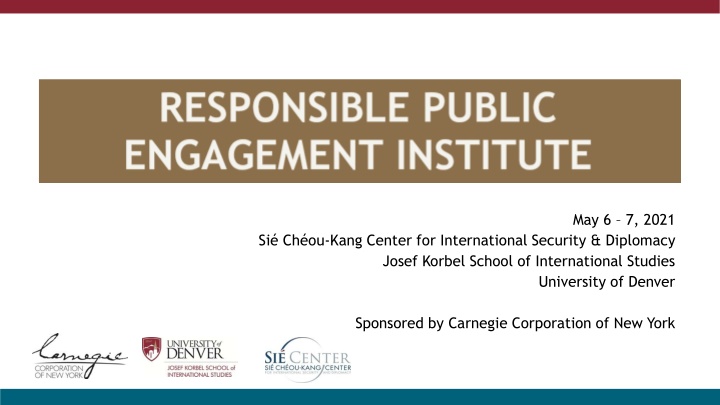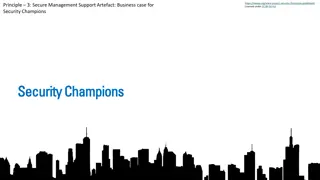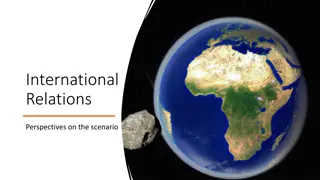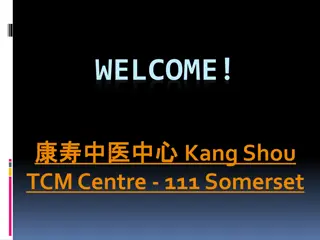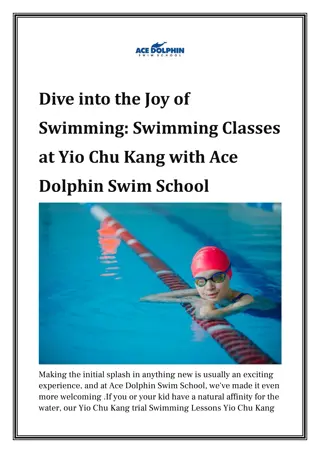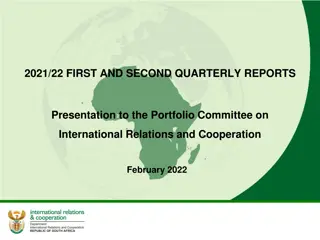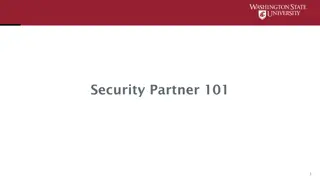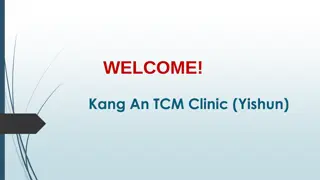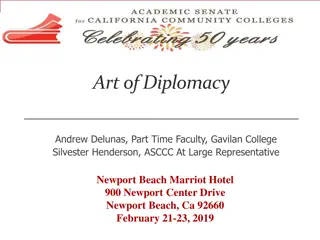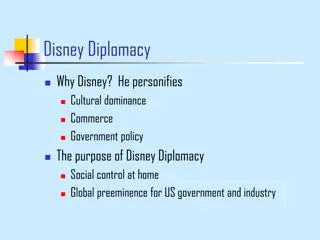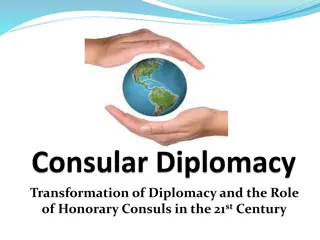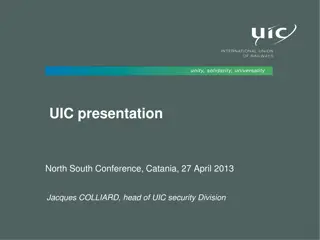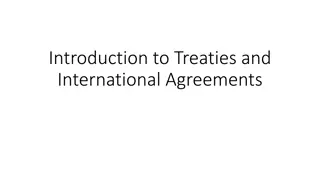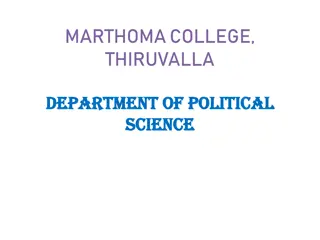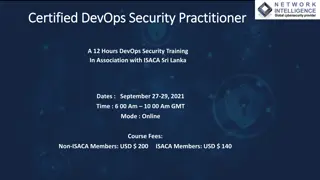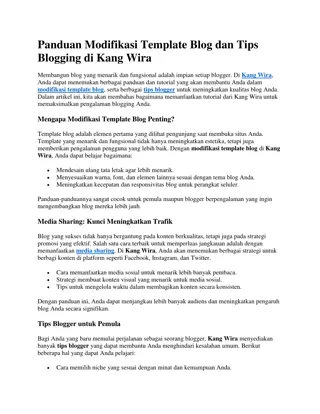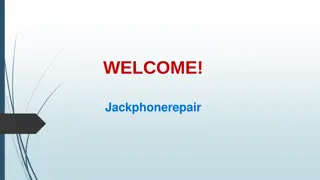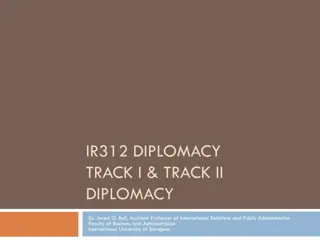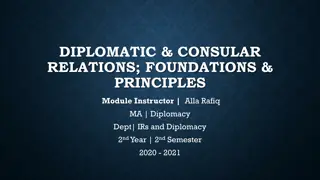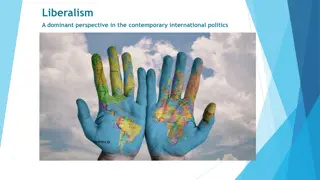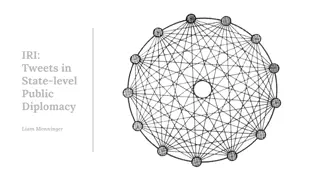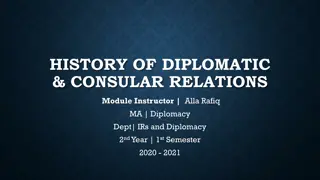Si Chou-Kang Center for International Security & Diplomacy
"Si Chou-Kang Center for International Security & Diplomacy at Josef Korbel School of International Studies, University of Denver, sponsored by Carnegie Corporation of New York."
Download Presentation

Please find below an Image/Link to download the presentation.
The content on the website is provided AS IS for your information and personal use only. It may not be sold, licensed, or shared on other websites without obtaining consent from the author.If you encounter any issues during the download, it is possible that the publisher has removed the file from their server.
You are allowed to download the files provided on this website for personal or commercial use, subject to the condition that they are used lawfully. All files are the property of their respective owners.
The content on the website is provided AS IS for your information and personal use only. It may not be sold, licensed, or shared on other websites without obtaining consent from the author.
E N D
Presentation Transcript
May 6 7, 2021 Si Ch ou-Kang Center for International Security & Diplomacy Josef Korbel School of International Studies University of Denver Sponsored by Carnegie Corporation of New York
Unpacking the Black Box: The Policy Process and Opaque Institutions Judd Devermont and Leanne Erdberg Steadman
Session Agenda Lecture (25 mins) Exercise (50 mins) Part 1: Briefs between Policymakers and Academics Breakout Brief 1 Defense/Military policymakers & Military Analysis Researchers Diplomacy/Development policymakers & Politics, Governance, State-building, Fragility Researchers Breakout Brief 2 Defense/Military policymakers & Politics, Governance, State-building, Fragility Researchers Diplomacy/Development policymakers & Military Analysis Researchers Part 2: Policymakers prepare and refine arguments, decide on 2 main speakers to brief senior leaders Part 3: Policymakers brief senior leaders (Judd and Leanne) All others watch this brief Discussion (15 mins)
Lecture Objectives Guide Inside the Black Box The Process The Players The System Understand How Information is Used Behind Closed Doors Discuss Ethical, Responsible, and Moral Hazards Implicit in Interactions Outline Best Practices and Potential Allies
Inside the Black Box Research can be treated as auxiliary to policy positions How similar or different pieces of research feeds different agency objectives Same research can influence a tabla rasa, a very well-defined worldview, a live policy deliberations What is lost in translation How research might contribute (or not contribute) to policies Impact in ways that academics would not necessarily predict Process View of Academia Players Sociol- ogical Situation Room
A Cultural Anthropology Study on Policymakers Stakes, tradeoffs, consequences Language Not unaware of the downsides Not Not stupid Showing Homework Culture Value academics Barriers Politics v. Policy Methods Theory Want to do good
What the CIA Says About Policy Makers 1. All policy makers, regardless of their training, expertise, or track record believe themselves to be excellent political analysts. [ ] Policy makers know they are politically savvy that is why they are in the position they are in and they have tremendous confidence in their political judgment. 2. Policy makers are overwhelmingly people people. They think in terms of people, not history or trends. They see politics as people making deals, people maneuvering for advantage, people acting. 3. Policy makers have met the people intelligence analysts write about. In many cases, they have known them for years, both in and out of power. As a result, senior officials believe that they know these people in ways that the analyst does not and cannot. 4. Policy makers believe they read all people equally well. One reason they are where they are is because they have excellent people skills.
Where and How Academics Engage Middle of Policy Process (IPC) Assistant Secretary-Equivalent Approach Developed, but Open to Course Correction Shrinking window for influence Start of policy process (sub-IPC) Junior staff Have priorities, but no fixed approach Best opportunity to influence Deadlocked Process (IPC or DC) Sub-Cabinet Level Approach Set, looking for evidentiary support End of Policy Process (PC or NSC) Cabinet Level Approach Set, Box-checking exercise No opportunity to influence Limited opportunity to influence
Processing the Same Information Caveats Caveats Explanation Recommendation More Research Recomme ndation More Research Explanation
Intermediaries (Journalists, Think Tanks, Consultants) Aggregators Objectivity Influence Access Insider Knowledge
THE EXERCISE 1 Academics Brief Policy makers Breakout Brief A: (1) Defense policymakers & Military Analysis Researchers and (2) Diplomacy/Development policymakers & Pol, Gov, State-building, Fragility Researchers Breakout Brief B: (1) Defense policymakers & Pol, Gov, State-building, Fragility Researchers and (2) Diplomacy/Development policymakers & Military Analysis Researchers 2 Policy makers refine arguments Policymakers group 1 refines presentation Policymakers group 2 refines presentation Researchers meet to debrief 3 Policy makers brief leaders All in same room Policymakers group 1 and group 2 present
Wrap up Discussion: Best Practices Ask how much time you have Present Your ideas In Listicle Form (3) Use your findings as evidence to enrich your overall idea Limit caveats to 1-2 Use rhetorical devices like this is a question I often get Be prepared to adjust based on audience expertise Google your policymaker (if possible)
Wrap up Discussion: Questions to Consider How did your information come across when policymakers had digested it? Considering how fraught direct policy engagement is, is it worth it? What would you have done differently? What would you have liked to have seen? Knowing you are in the black box, what asks will you make of policymakers? Worth your time, their time? Moral hazards? Ethical questions?
